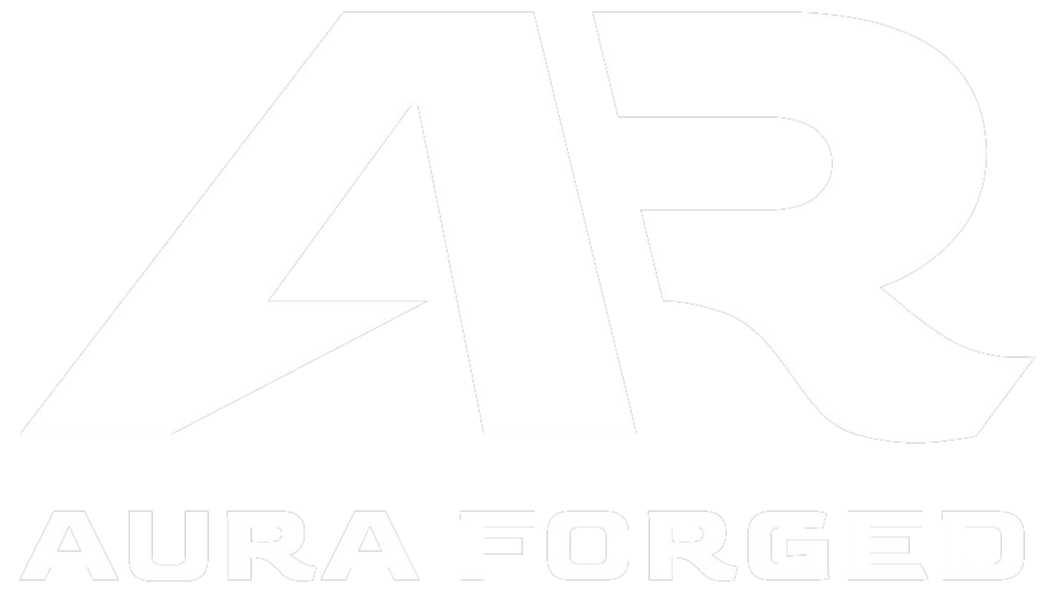What Makes a Forged Wheel Worth Investing In
- Brinal Chua

- Nov 19, 2025
- 8 min read
Over three decades in the automotive industry across Southeast Asia has taught me one fundamental truth: the right wheels don't just change how your car looks. They transform how it drives, performs, and endures the unique challenges of our roads.
I've witnessed the evolution of wheel manufacturing first-hand, from basic cast designs to today's aerospace-grade forged technology. At Aura Forged, we've made it our mission to bridge the gap between ultra-premium performance wheels and everyday enthusiasts, proving that true craftsmanship shouldn't be out of reach.

The question I hear most often isn't whether forged wheels are better; most enthusiasts already sense they are. The real question is: are they worth the investment? Let me share what three decades of experience, rigorous engineering, and countless conversations with drivers across ASEAN have taught me about this decision.
Key Takeaways
Forged wheels use 6061-T6 aerospace aluminum, creating superior strength-to-weight ratios through grain structure alignment
Weight reduction of 25-30% compared to cast wheels improves acceleration, braking, road-handling, fuel-efficiency, and longer lifespan of related components.
Unsprung weight reduction has a disproportionate impact on vehicle dynamics. Often cited as 1:10 ratio
IATF16949, JWL, and VIA certifications ensure manufacturing quality and safety standards
Durability differences matter: forged wheels bend under extreme stress; cast wheels crack or break
Long-term value for performance vehicles, EVs, and daily drivers in ASEAN conditions
Table of Contents
Understanding the Forging Process
The fundamental difference between forged and cast wheels begins at the molecular level. When I explain this to workshop partners across Southeast Asia, and beyond, I emphasize that we're not talking about marketing claims. We're discussing physics and metallurgy that directly impact your driving experience.
How Forging Creates Superior Structure
Forged wheels are created by applying upwards of 10,000 tons of force to aerospace-grade aluminum, a process that aligns the grain structure of the metal with the shape of the wheel, resulting in significantly greater strength. This isn't just about applying pressure; it's about fundamentally reorganizing the metal's internal structure for optimal performance.
At Aura Forged, we start with 6061-T6 aluminum billets. The same material is used in aerospace applications, Formula 1, and military equipment. The forging process we employ follows these critical stages:
Heating: Controlled temperature elevation prepares the aluminum for transformation
Hydraulic Pressing: 10,000-ton hydraulic presses compress the billet
Grain Alignment: Metal grain flows with the wheel's shape, eliminating weak points
Heat Treatment (T6): Solution heat treatment followed by artificial aging maximizes strength
CNC Machining: Precision milling removes excess material while maintaining structural integrity
Comparing Manufacturing Methods
Manufacturing Method | Process | Strength | Weight | Porosity | Cost |
Cast Wheels | Molten aluminum poured into molds | Moderate | Heavier | Present (air pockets) | Lower |
Flow-Formed | Cast center + pressurized barrel | Good | Lighter than cast | Barrel improved only | Mid-range |
Fully Forged | Solid billet compressed | Excellent | 25-30% lighter | Eliminated | Premium |
The forging manufacturing process eliminates porosity, shrinkage, and other micro-defects present in raw material, resulting in aluminum with high uniformity in grain structure.
The Engineering Advantage: Why Material Matters
The 6061-T6 Aerospace Standard
6061-T6 forged aluminum is a premier choice in military applications, aerospace, Formula 1, and drag racing, offering an optimal blend of high performance, strength, and durability. This isn't marketing hyperbole. It's the material specification that determines whether a wheel will perform reliably under stress or fail when you need it most.

The "T6" designation refers to a specific heat treatment process involving solution heat treatment followed by artificial aging. This process:
Increases tensile strength to 320MPa (compared to 280MPa in standard alloys)
Improves corrosion resistance crucial for humid ASEAN climates
Enhances machinability for precise fitment tolerances
Optimizes weight-to-performance ratio for efficiency
Why Grain Structure Determines Everything
In cast wheels, molten aluminum cools randomly, creating an inconsistent grain structure with air pockets and weak points. Under stress, these become failure points. By creating the shape during the forging process, the grain of the metal flows with the shape of the wheel, resulting in much greater strength.
This aligned grain structure allows manufacturers to use 30-35% less material while achieving superior strength. A principle I've relied on when specifying wheels for performance vehicles throughout my career.
Performance Benefits You'll Actually Feel
The Unsprung Weight Revolution
Here's where engineering theory becomes driving reality. Unsprung weight, components not supported by your suspension system, has a disproportionate impact on vehicle dynamics.
A general rule of thumb is that removing one pound of unsprung weight is equivalent to shedding up to ten pounds of sprung weight when it comes to performance gains. Let me put this in perspective based on real-world testing:
Acceleration Improvements:
Vehicles equipped with flow-forged wheels consistently show improved 0-60 times without engine modifications, with the effect most dramatic during roll-on acceleration where reduced rotational inertia allows the engine to build speed more efficiently
Less rotational mass means your engine works less to overcome inertia
Particularly noticeable in EVs where efficiency directly impacts range
Braking Performance:
Handling Precision:
Reduced unsprung mass creates telepathic steering response, as the suspension system needs to overcome less rotational resistance
Faster response to steering inputs
Better tire contact patch maintenance during cornering
Real-World Impact on ASEAN Roads
Having tested wheels across diverse ASEAN conditions. From Singapore's smooth expressways to Manila's challenging urban infrastructure and Malaysia's highway network, I can confirm that weight reduction matters even more on real roads than test tracks.
When you encounter potholes, expansion joints, or sudden surface changes, lighter wheels allow your suspension to react more effectively, maintaining control and comfort simultaneously.
Safety and Durability: The Critical Difference
How Wheels Fail Matters
This is perhaps the most crucial distinction between cast and forged wheels, and it's based on fundamental material behavior under extreme stress.
Cast wheels are designed for lower load ratings and when subjected to heavy impacts, tend to crack and break due to voids present in the casting aluminum; if the wheel snaps, the result can be catastrophic.
Forged wheels respond differently: Under impact, forged aluminum will bend out of shape instead of snapping, allowing sufficient time for the driver to stop safely.
I've seen this difference firsthand across my career. A bent forged wheel is replaceable and gives warning; a catastrophically failed cast wheel is a safety emergency.

Certification Standards You Can Trust
Quality forged wheels undergo rigorous testing and certification:
IATF16949 Certification: IATF 16949:2016 is a common automotive quality system requirement based on ISO 9001:2015, with specific requirements from the automotive sector. This ensures every stage of production meets automotive industry standards.
JWL (Japan Light Alloy Wheel) Standard: JWL mandates manufacturers to have wheels inspected and approved by certified third-party labs, ensuring credibility and consistency of ratings.
VIA (Vehicle Inspection Association): VIA certification requires manufacturers to follow strict guidelines and undergo rigorous testing, including tests with different tire sizes and vehicles, with meticulous independent third-party testing.

At Aura Forged, every wheel we produce carries IATF16949, JWL, and VIA certifications. Not because regulations require it, but because precision demands it.
Cost vs. Value: The Long-Term Equation
Let's address the investment question directly with the transparency our brand is built on.
Initial Cost Breakdown
Forged wheels typically cost more upfront:
Cast wheels: $200-500 per wheel
Flow-formed wheels: $400-800 per wheel
Premium forged wheels: $800-2,000+ per wheel
Aura Forged wheels: Positioned for accessibility while maintaining aerospace standards
Long-Term Value Proposition
Consider the complete ownership picture:
Durability Benefits:
Forged wheels resist damage better in daily use
Lower replacement frequency over vehicle ownership
Higher resale value when upgrading
Performance Efficiency:
Improved fuel economy from weight reduction
For EVs: Extended range from reduced unsprung mass
Reduced wear on suspension and brake components
Customization Investment:
At Aura, we offer personalization without ultra-premium pricing
Engraving, finish options, and precise fitment specifications
True one-off designs when you want complete individuality
Who Benefits Most from Forged Wheels?
Based on three decades of automotive experience, I recommend forged wheels particularly for:
Performance vehicle owners (BMW, Porsche, AMG, sports cars)
EV drivers seeking maximum efficiency and range
Enthusiasts who prioritize driving dynamics
Track day participants requiring reliability under stress
Premium SUV owners needing high load ratings with weight savings
Daily drivers in challenging conditions (ASEAN roads, tropical climate)
Why Forged Wheels Matter More in ASEAN
Our region presents unique challenges that make forged wheel advantages particularly relevant:
Tropical Climate Considerations
Humidity and corrosion: 6061-T6 aluminum offers superior corrosion resistance
Temperature cycling: Forged wheels maintain structural integrity through heat cycles
UV exposure: Quality finishes on forged wheels resist degradation better
Road Infrastructure Realities
Singapore, Philippines, Malaysia, Thailand, Indonesia. Each presents distinct challenges. From pristine highways to urban infrastructure with expansion joints, potholes, and inconsistent surfaces, forged wheels provide:
Impact resistance critical for sudden road imperfections
Structural reliability when encountering unexpected hazards
Longevity despite challenging conditions
Regional Vehicle Trends
The ASEAN market shows increasing adoption of:
Electric vehicles (BYD, Tesla, Hyundai) where wheel weight directly impacts range
Performance vehicles requiring proper wheel specifications
Premium SUVs needing high load capacity without weight penalty
Ready to Experience Precision Engineering?
At Aura Forged, we've built our reputation on one principle: luxury is not defined by price, but by precision. Every Aura wheel embodies aerospace-grade engineering, meticulous design, and attainable exclusivity.
Whether you're driving a Porsche through Singapore's expressways, navigating Manila's urban environment in your BMW, or taking your Tesla across Malaysia's highway network, the right wheels transform your experience.
Get your perfect fitment today:
WhatsApp consultation: Get expert fitment guidance for your specific vehicle
Explore customization: Create truly individual wheels with personalized engraving and finishes
Visit Aura Forged to configure your perfect set, or contact us directly for questions and B2B partnership inquiries.
Frequently Asked Questions
Are forged wheels worth the extra cost over cast wheels?
Based on 30+ years in the automotive industry, yes. Especially for performance vehicles, EVs, and drivers who prioritize handling. The 25-30% weight reduction, superior durability, and safety advantages justify the investment. Forged wheels bend under extreme stress rather than catastrophically failing, and their reduced unsprung weight provides improvements equivalent to removing far more static weight from your vehicle.
How much lighter are forged wheels compared to cast wheels?
Forged wheels are typically 25-30% lighter than equivalent cast wheels. For example, a cast 19-inch wheel weighing 26 pounds might be replaced by a forged version at 19 pounds. A 7-pound reduction per wheel, or 28 pounds total for a full set. This unsprung weight reduction has a disproportionate performance impact, often cited as equivalent to removing 10 times that weight from the vehicle body.
Do forged wheels really improve performance, or is it just marketing?
The performance improvements are physics-based, not marketing claims. Reduced rotational inertia improves acceleration and braking efficiency. Lighter unsprung weight allows suspension to maintain better tire contact, improving handling precision. Independent testing consistently shows measurable improvements in 0-60 times, braking distances, and handling response with forged wheels versus cast equivalents.
What certifications should I look for in quality forged wheels?
Look for IATF16949 (automotive quality management), JWL (Japan Light Alloy Wheel standard with third-party verification), and VIA (Vehicle Inspection Association independent testing). These certifications ensure wheels meet rigorous safety and quality standards. At Aura Forged, all our wheels carry these certifications because precision demands it.
Are forged wheels suitable for daily driving in Southeast Asia?
Absolutely. In fact, ASEAN conditions make forged wheels particularly valuable. The 6061-T6 aerospace aluminum offers superior corrosion resistance in our humid climate, better impact resistance for varied road conditions, and structural reliability through temperature cycling. The combination of strength and weight savings benefits both performance driving and daily use across Singapore, Philippines, Malaysia, and throughout the region.
References
Vivid Racing. (2025). "Cast Wheels vs Forged Wheels: What's the Real Difference." https://www.vividracing.com/blog/cast-wheels-vs-forged-wheels-whats-the-real-difference/
AST Forged Wheels. (2024). "Cast vs Flow Formed vs Forged Wheels - The Real Difference." https://astforgedwheels.com/cast-vs-flow-formed-vs-forged-wheels-the-real-difference/
JC Forged Wheels. "Forged vs. Cast vs. Rotary Forged Wheels." https://www.jcforgedwheels.com/blog-posts/forged-vs-cast-vs-rotary-forged-wheels-whats-the-difference
3030 Autosport. "Forged Wheels - What does Forged 6061-T6 mean?" https://3030autosport.com/3030-custom-wheels-blog/what-does-forged-6061t6-mean/
Velgen Wheels. (2023). "What Are SAE, JWL, VIA Standards | Wheel Ratings Explained." https://www.velgenwheels.com/blogs/blog/what-are-sae-jwl-via-standards-wheel-ratings-explained
NQA. "IATF 16949 Certification - What Is the IATF 16949 Standard?" https://www.nqa.com/en-cy/certification/standards/iatf-16949
Velgen Wheels. (2025). "What Is Unsprung Weight & How Do Lighter Wheels Affect It?" https://www.velgenwheels.com/blogs/blog/what-is-unsprung-weight-lighter-wheels
Curva Concepts. (2025). "Unsprung Weight: Lightweight Performance." https://curvaconcepts.com/resources/unsprung-weight-and-lightweight-wheels/





Comments